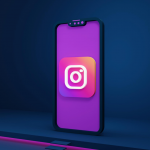In the digital landscape, you’ll often hear terms like digital creators and influencers. They’re thrown around a lot, but do we really know the difference? I’ve spent years navigating the online world and I’m here to shed some light on it.
Digital creators and influencers might seem synonymous at first glance. They both have a strong online presence and a knack for grabbing attention. But, there’s more to the story than meets the eye. These roles have unique characteristics that set them apart.
So, let’s dive in and explore the fascinating world of digital creators and influencers. It’s time to unravel the mystery and understand what truly makes them tick. Stay tuned as we delve into their roles, their impact, and the key differences that set them apart.
What is a Digital Creator?
When we delve into the world of digital creators, we’re talking about inventive individuals who craft, manipulate, and produce digital content. They’re not merely posting selfies or sharing their daily lives but are actively creating content that is fresh, engaging, and unique. Whereas an influencer might primarily focus on promoting products or ideas, a digital creator is all about letting their creativity shine.
Digital creators could be illustrators, writers, podcasters, YouTubers, bloggers, photographers, or even app developers. They’re the ones behind the exciting new podcast you can’t stop listening to, the beautiful photos on your favourite Instagram accounts, the insightful blog posts that you bookmark time and again.
The key to being a digital creator is not just about creating content, but creating content that connects. The digital creator’s mission is to build a deep, authentic connection with their audience. Although they may not possess the large follower counts typical of influencers, they have a closer, more engaged community of followers. They know their audience intimately, understanding what they want to see and hear, tailoring their content to meet those needs.
Creating content as a digital creator isn’t so much about quantity as it is about quality. Oops! Let’s turn that into insightful data, shall we?
| Pointers | Digital Creator |
|---|---|
| Focuses on | Creating unique and fresh content |
| Content is | High-quality, personalized |
| Relationship with audience | Authentic, engaged |
| Follower count | May be lower, but more active |
As a digital creator, it’s about sharing that spark of inspiration to inspire their audience, about leading the conversation rather than being led. They’re always looking ahead, asking “What’s next?” They’re continuously learning, adapting and transforming to tap into new trends and opportunities. This approach is what makes them innovators in the truest sense of the word. So next time you’re scrolling through your feed, take a moment to appreciate the work of digital creators – the ones generating the content that entertains, educates, and inspires you. Remember, they’re more than just a name on the screen. They’re creative powerhouses, driving innovation in the digital space.
Characteristics of Digital Creators
Digital creators possess unique characteristics that differentiate them. They’re innovators at heart. A digital creator doesn’t merely follow but leads. They have an inherent capacity to continuously generate new content that echoes with their audience.
Innovation isn’t about rehashing what’s already there; it’s about creating something fresh and meaningful. That’s exactly what digital creators do. They build something new, and that’s why digital creators stand at the forefront of any major trend.
Another aspect that sets digital creators apart is their utter dedication to their craft. Whether they’re creating a blog post, podcast, or photo, each piece of work is crafted with care. This dedication resonates through the authenticity of their content, which creates a deep connection with their audience.
Let’s look at some key data points to illustrate this:
| Characteristics of Digital creators | Description |
|---|---|
| Innovation | They are trendsetters, not followers. They are at the forefront of any major trend. |
| Dedication | Every piece of work is crafted with precision and care. |
| Authenticity | The authenticity of their content creates a deep connection with the audience. |
As a digital creator, it’s also crucial to keep adapting. Online trends shift quicker than you can imagine. As a creator, adapting to these changes is integral to thriving and remaining relevant. A creator who manages to ride the changing dynamics successfully can grow their audience exponentially and continuously influence them.
Digital creators also understand the importance of two-way communication with their audience. The influence isn’t based on the popularity or the number of followers; rather, it’s about engagement and interaction. This engagement builds a sense of community and bonds that are stronger than mere passive following.
A digital creator could have fewer followers but a far more engaged community. There is a sense of authenticity and trust here, which has a far more significant impact on the audience. This makes digital creation a much more powerful platform to engage an audience.

The Role and Impact of Digital Creators
Digital creators have been making waves in the online world for a reason. Their role stretches beyond creating interesting content. They delve deeper, building circles of engaged followers sharing a common interest. This engagement with their audience often results in an authentic connection that’s simply unachievable by traditional influencers.
It’s clear how impactful digital creation can be. For instance, they help brands drive authentic engagement. When an audience sees content that’s thoughtfully created, they are more likely to interact and potentially convert, an advantage in digital marketing and advertising. That’s because genuine engagement translates into trust, and trust leads to brand loyalty.
Here’s a related fact: Digital creators often yield high engagement rates despite having fewer followers compared to traditional influencers. It isn’t just about the number of fans, it’s about how tuned in they are.
| Engagement Rate | |
|---|---|
| Digital Creator | 4.52% |
| Traditional Influencer | 3.61% |
Even with fewer followers, the engagement rates for digital creators can be higher than influencers’. This clearly exemplifies the impact and reach of thoughtfully created content and helps show why digital creators should not be underestimated.
Moreover, digital creators consistently evolve and innovate their content to keep up with online trends. They wear multiple hats – from being content developers to their own marketing managers. They manage their brand effectively, using various social media algorithms to their advantage. Consequently, content from digital creators often ranks higher in social media feeds – another testament to their growing power.
Lastly, digital creators play a vital role in shaping online discourse. By sparking meaningful conversations, they can influence public opinion and trends. In their virtual spheres, these digital trendsetters drive social change.
In essence, the role of digital creators is expanding. They’re not just innovators, but communicators and influencers in their own right, helping to shape digital landscapes across the globe.
What is an Influencer?
After defining digital creators, let’s now dive into explaining what an influencer is. An influencer, in its simplest form, is an individual who wields a significant amount of influence over their audience. This influence typically comes from the influencer’s idea about trends, lifestyle, products, and services thereby shaping the purchasing decisions of numerous consumers.
Influencers typically have a large following on social media platforms, with thousands, if not millions, of followers. You’d commonly find them flaunting followers in the range from 10,000 to 7 million and beyond. The fan base is often captivated and inspired by their lifestyle, fashion sense, fitness journeys, or gourmet meals.
While influencers may not always create their content, they are masters of showcasing products or services to their followers in an appealing way. This is often done through strategic collaborations with brands, where influencers weave the brand’s message into posts, videos, stories, or live sessions, thereby making the promotion feel organic and authentic. Unlike digital creators who might have a deep involvement with their craft, influencers are largely seen as brand endorsers.
However, while size does matter in the influencer marketing sphere, it doesn’t dominate entirely. It’s not just about the volume of followers but also the connection the influencer has with their followers. Hence, the variety of influencers is vast — from celebrities to nano-influencers, who might have a smaller following but high engagement rates.
For brands, working with influencers can open doors to an audience that may be hard to reach through traditional advertising channels. This is beneficial in boosting brand visibility, increasing sales, or strengthening brand reputation.
Looking at influencers and digital creators, there are clear distinctions, but there’s also substantial overlap in their roles and impact. The diverse digital world acknowledges both personas for their unique contributions. Both groups play crucial roles in shaping online discourse, driving consumer behavior and molding societal dynamics. The choice between them, however, is contingent on the type of engagement a brand seeks with its audience. It’s a game of numbers versus authenticity, influence versus creativity. It delves deeper into recognizing what appeals the most to your target audience.
Characteristics of Influencers
Influencers hold a unique advantage in the digital landscape due to their immense influence and reach. These individuals primarily leverage their personal relationships with an expansive follower base to bring brands to the spotlight. They have an uncanny knack for captivating the interest of their audience, often conveying a strong sense of authenticity and credibility.
Possessing a significant social media following isn’t the only factor that distinguishes influencers. They are also marked by their power to persuade. My experience in the field has shown that the effectiveness of an influencer isn’t solely measured by the follower count; it’s the genuine connection they maintain with followers that matters. Influencers’ ability to stimulate discussions and opinions on a variety of topics can sway audience behavior to a significant degree.
Influencers tend to have a deep understanding of their followers, often becoming part of their daily life or routine. They’ve cultivated a bond with their online community that permits them to strategically guide consumer choices. This bond translates into trust and ultimately, significant sway over purchasing decisions.
A key trait of influencers is their knack for creating nuanced content. Tailoring content to resonate with their followers is one of their main strategies. They know what will work, when to post, and how to engage with their audience.
While influencers may initially appear to simply be popular Social Media users, there’s much more to their role. Their broad reach and substantial influence make them indispensable in the evolving world of digital marketing. However, it’s equally important to recognize that their success hinges on maintaining authenticity and a meaningful connection with their followers.
In the subsequent section, I’ll delve deeper into the characteristics of digital creators, highlighting the crucial deviations that separate these two powerful roles in today’s virtual environment.
The Role and Impact of Influencers
Diving deeper into the digital landscape, influencers bear immense impact. It’s pivotal to recognize that the effectiveness of influencers isn’t just about their follower count; it stretches far beyond that. It’s in fact, the genuine connection they build with their followers that enhances their influence.
Influencers have tastefully mastered the art of creating content with a personal touch. This authentic approach captivates their audience, building an unparalleled bond and loyalty. As any marketer would swear by, trust is the foundation of any transaction. Influencers having rooted that trust within their community can essentially influence their audience’s consumer choices. This significant ability leaves them in a remarkable position in the realm of digital marketing.
Moreover, influencers come equipped with a deep understanding of their followers’ interests, preferences, and consumption patterns. They wield this understanding to create content that not only gets viewed, but becomes a part of a conversation, resonating with their followers. Talk about effective audience engagement!
Interestingly, the impact of an influencer isn’t confined to just their followers. They enjoy a broader reach. In a digital space where everyone’s vying for attention, influencers come with a ready audience. They can single-handedly enhance visibility for brands, steering online chatter effectively.
Influencer’s might appear to be just popular individuals flashing a glamorous social media lifestyle. But, their reach, influence and ability to connect authenticately with followers make them an indispensable part of digital marketing. Their success though, largely depends on maintaining this authenticity and the trust they’ve cultivated.
Looking at it from another perspective, digital creators also play a noteworthy role in the digital landscape. They too have the potential to influence consumer behavior. However, their function and modus operandi are somewhat different, which I’ll cover in the next segment.
Key Differences between Digital Creators and Influencers
When exploring the digital landscape, it’s imperative to distinguish between digital creators and influencers as each plays a different yet equally important role in online engagement. Here, let’s delve into some of their key differences.
Primarily, a digital creator is a professional who focuses on creating content – be it photos, videos, blogs or podcasts. They are the architects, designing and producing original content for their platforms. They often interact with their followers, but their primary aim is to generate innovative, engaging content. Their followers are their audience, to whom they provide entertaining value.
Contrastingly, influencers capitalize on their reach and impact. They have established a substantial online presence across various social media platforms and have built a strong relationship with their followers. Their followers are not merely an audience, but an engaged community. The influencer takes on the role of a trusted advisor to this community, guiding their consumption habits and preferences.
Presence becomes a vital divide, looking at the way digital creators and influencers interact with their audience. While a digital creator might have a smaller, niche follower base, an influencer tends to reach a more extensive audience.
Another crucial difference lies within the level of audience interaction. Influencers commonly engage more personally with their followers, involving them in their daily lives and sharing personal experiences. Digital creators, on the other hand, might keep a bit more distance, focusing mainly on their creative work.
To illustrate these differences, consider the following breakdown:
| Digital Creators | Influencers | |
|---|---|---|
| Focus | Content creation | Influence |
| Engagement | Audience | Community |
| Reach | Niche | Extensive |
| Interaction | Content-centered | Personal |
These differences in focus, engagement, reach and interaction define the underlying identities of digital creators and influencers. Understanding these distinctions is pivotal to properly navigating the digital landscape and leveraging its potential in a strategic manner. By acknowledging their unique attributes and strengths, we can better appreciate their roles in shaping the online universe.
Conclusion
So there you have it. The digital landscape is a dynamic place, teeming with digital creators and influencers, each playing a unique role. While influencers excel in building authentic relationships with their followers and guiding their choices, digital creators are the masters of content creation and audience interaction. Both digital creators and influencers have the power to shape consumer behavior, but their methods vary. It’s essential to grasp these differences, as it can help you effectively navigate the digital world.
Whether you’re a brand looking to increase visibility or an individual aiming to understand the digital landscape better, knowing the difference between digital creators and influencers is key. Remember, it’s not about who’s better – it’s about understanding their unique roles and leveraging their strengths effectively.
 Boosting Engagement with Clickable Videos: Your Secret Weapon for Content Success
Boosting Engagement with Clickable Videos: Your Secret Weapon for Content Success  Shoppable Videos: 7 Interesting tips to Make the Most Out of This Trend?
Shoppable Videos: 7 Interesting tips to Make the Most Out of This Trend?  How Content Marketing Boosts Sales
How Content Marketing Boosts Sales  8 Good Interactive Instagram Story Ideas for Business
8 Good Interactive Instagram Story Ideas for Business  Maximizing ROI: Are Short-Form Videos the Future of Content Marketing?
Maximizing ROI: Are Short-Form Videos the Future of Content Marketing?